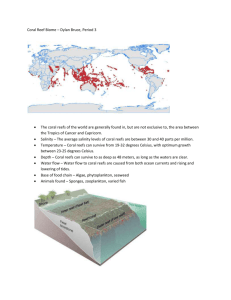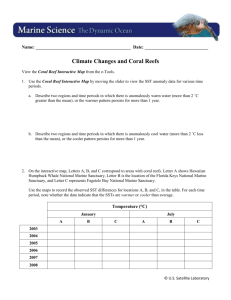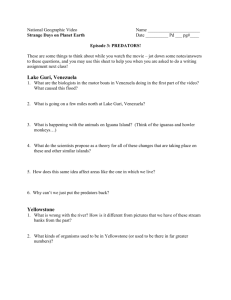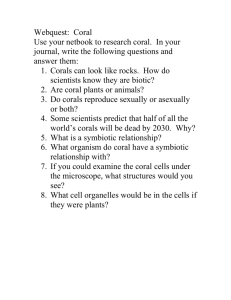UT Arlington biologists taking coral reef research to Australia
advertisement
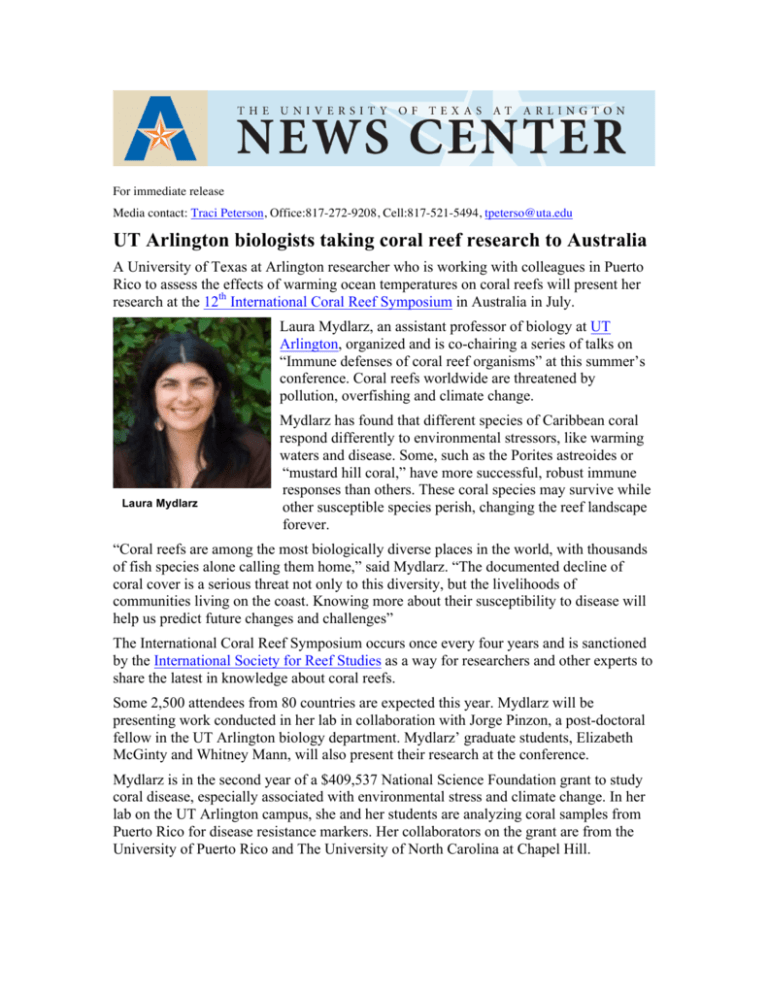
For immediate release Media contact: Traci Peterson, Office:817-272-9208, Cell:817-521-5494, tpeterso@uta.edu UT Arlington biologists taking coral reef research to Australia A University of Texas at Arlington researcher who is working with colleagues in Puerto Rico to assess the effects of warming ocean temperatures on coral reefs will present her research at the 12th International Coral Reef Symposium in Australia in July. Laura Mydlarz, an assistant professor of biology at UT Arlington, organized and is co-chairing a series of talks on “Immune defenses of coral reef organisms” at this summer’s conference. Coral reefs worldwide are threatened by pollution, overfishing and climate change. Laura Mydlarz Mydlarz has found that different species of Caribbean coral respond differently to environmental stressors, like warming waters and disease. Some, such as the Porites astreoides or “mustard hill coral,” have more successful, robust immune responses than others. These coral species may survive while other susceptible species perish, changing the reef landscape forever. “Coral reefs are among the most biologically diverse places in the world, with thousands of fish species alone calling them home,” said Mydlarz. “The documented decline of coral cover is a serious threat not only to this diversity, but the livelihoods of communities living on the coast. Knowing more about their susceptibility to disease will help us predict future changes and challenges” The International Coral Reef Symposium occurs once every four years and is sanctioned by the International Society for Reef Studies as a way for researchers and other experts to share the latest in knowledge about coral reefs. Some 2,500 attendees from 80 countries are expected this year. Mydlarz will be presenting work conducted in her lab in collaboration with Jorge Pinzon, a post-doctoral fellow in the UT Arlington biology department. Mydlarz’ graduate students, Elizabeth McGinty and Whitney Mann, will also present their research at the conference. Mydlarz is in the second year of a $409,537 National Science Foundation grant to study coral disease, especially associated with environmental stress and climate change. In her lab on the UT Arlington campus, she and her students are analyzing coral samples from Puerto Rico for disease resistance markers. Her collaborators on the grant are from the University of Puerto Rico and The University of North Carolina at Chapel Hill. Mydlarz also was recently a coauthor on a Journal of Experimental Biology paper called: “Patterns of coral ecological immunology: variation in responses of Caribbean corals to elevated temperature and a pathogen elicitor.” “The research going on in Dr. Mydlarz’ lab gives students the opportunity to reach beyond North Texas and address a worldwide problem like coral decline,” said Pamela Jansma, dean of the UT Arlington College of Science. “Her inclusion in this international gathering is a testament to the quality of her work.” The University of Texas at Arlington is a comprehensive research institution of nearly 33,500 students in the heart of North Texas. Visit www.uta.edu for more information. ###


